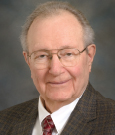The following essay by Emil J. Freireich, MD, is adapted from The Big Casino: America’s Best Cancer Doctors Share Their Most Powerful Stories, which was coedited by Stan Winokur, MD, and Vincent Coppola and published in May 2014. The book is available on Amazon.com and thebigcasino.org.
I learned two lessons early in my career as an oncologist. The first is that conventional wisdom should not impede an investigator from pursuing innovative approaches to desperate problems. Second, patients who are well informed are prepared to participate in clinical research studies to take risks and reap potential benefits; their parents, relatives, and friends are an important part of the team moving to improve cancer therapy.
After completing my training in internal medicine and hematology, I was drafted into the army and assigned to serve as a research physician at the newly opened clinical center of the National Cancer Institute. There I was assigned to care for children with acute leukemia. In 1955, the disease was 100% fatal, with a median survival of 8 weeks and more than 90% mortality at 1 year following diagnosis.
It was the horror of a disease that killed children in less than a year, but what was also horrible was the way they died: of extensive bleeding from every orifice in their bodies. For these children, bleeding was the worst part of their illness. The conventional wisdom was that the bleeding was a result of the circulating anticoagulant. However, it was demonstrated that experimental animals depleted totally of platelets would not bleed unless anticoagulant was added. This seemed to suggest that it might be possible to stem our young patients’ terrible bleeding.
I went directly to investigate this possibility in my patients. I found that the intensity of bleeding was directly related to a decrease in platelets in a patient’s blood. In my laboratory, I demonstrated that adding normal platelets to patients’ blood corrected all the clotting problems.
The Courage of Clinical Volunteers
I had a patient named Scotty, a 10-year-old boy whose father was a minister. I had the idea that we could correct Scotty’s persistent hemorrhage by replacing both his platelets and blood serum. One way to accomplish that was to conduct an “exchange transfusion.” I approached Scotty’s father and asked whether he could deliver from his congregation 20 volunteers who would sit with me for hours to exchange—in 50 ccl units—Scotty’s blood with their blood. To achieve 50% replacement required replacing Scotty’s entire blood volume, approximately 1 L.
The results of this study were dramatic. Scotty’s bleeding stopped immediately. After the transfusions were completed, his platelet count was approximately 50% of normal. We observed his platelet counts over the next 10 days, and they began to drop precipitously. When the platelet count got below 10,000, Scotty’s bleeding resumed.
Scotty would subsequently die of progressive leukemia, but his contribution to research, which would help other patients, has stayed in my memory all these years. Relatively speaking, his death—terrible as it was—was not nearly as horrible as it would have been had he died of hemorrhage.
Advancing Cancer Treatment
Scotty’s parents, the donors, and everyone involved were very grateful for this respite. This experience led to the development of effective methods for collecting and storing platelets, for defining the limits of donation by normal volunteer donors, for defining the dosage necessary to control hemorrhage, for defining the level of platelets in which hemorrhage is likely, and for developing prophylactic platelet transfusion.
In a period of a few years, hemorrhage as a cause of morbidity and mortality was largely eliminated—thanks to the volunteer efforts of Scotty’s father and his church members who participated in this investigation. ■
Dr. Freireich holds the Ruth Harriet Ainsworth Chair in Developmental Therapeutics at The University of Texas MD Anderson Cancer Center in Houston.


